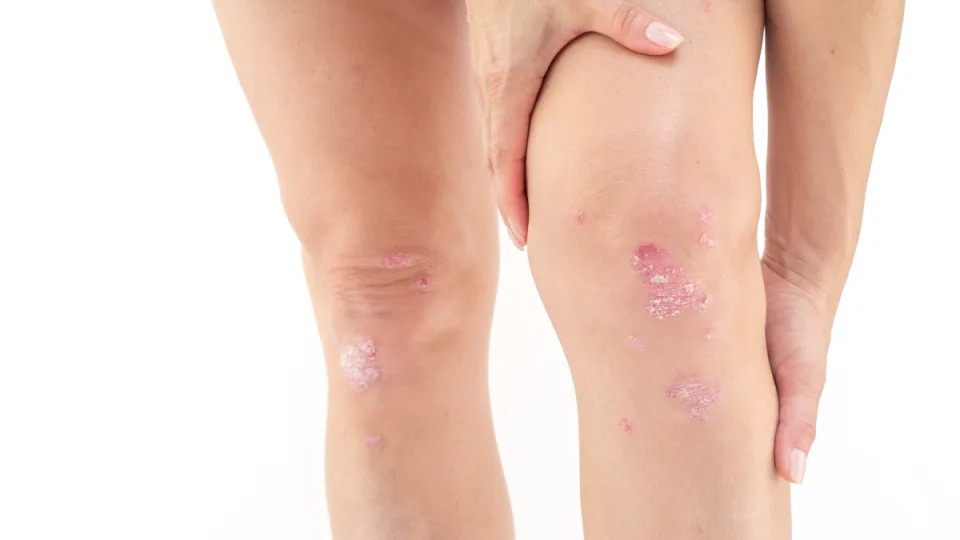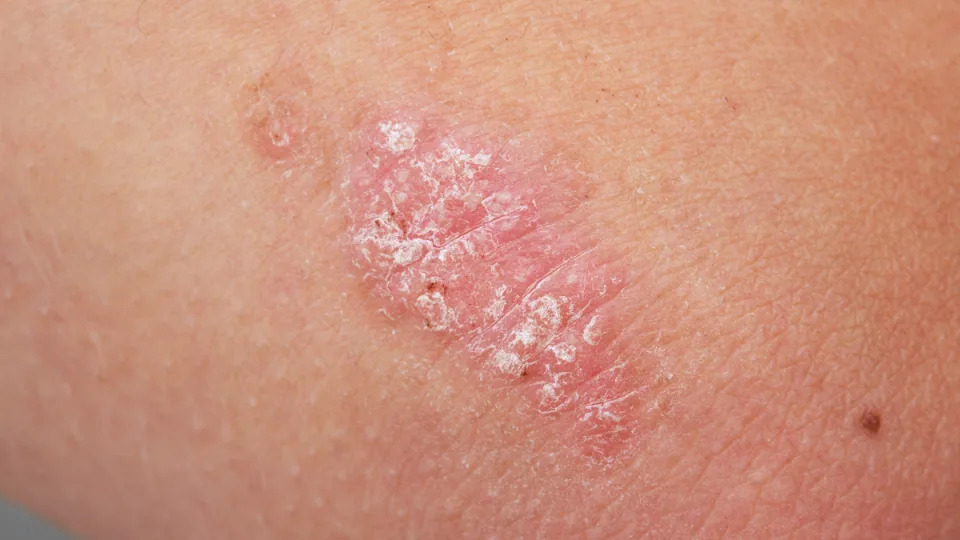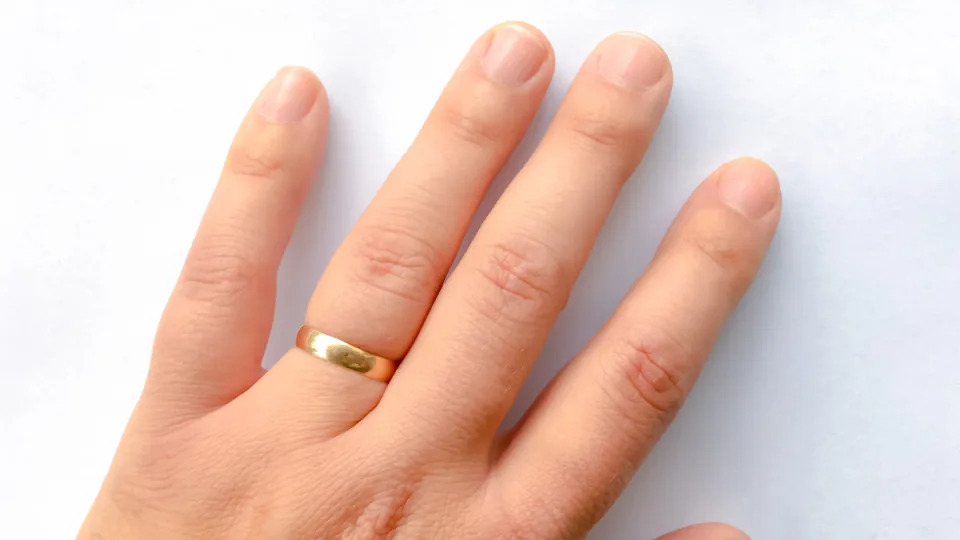From yahoo.com/lifestyle
Sore, stiff joints are more than just a nuisance. When pain flares up, it can sometimes make even simple tasks like driving or writing challenging. But what you might not know is that if your joint pain occurs alongside skin-related symptoms, it could point to an autoimmune disease like psoriatic arthritis (PsA). So, what are the early warning signs of psoriatic arthritis, and why do they matter?
To answer these questions, we connected with top rheumatologists. Here, doctors explain what psoriatic arthritis is, what everyone with joint pain should look out for and the best home remedies to ease symptoms.
WHAT IS PSORIATIC ARTHRITIS?
“Psoriatic arthritis is an inflammatory condition that generally involves the skin, nails and also the joints,” explains Aly Cohen, MD, an integrative rheumatologist and the author of Non-Toxic: A Guide to Living Healthy in a Chemical World. “It’s an autoimmune disease, which means that your immune system recognizes your body as the enemy, particularly your joints and skin.”
Without treatment, psoriatic arthritis can cause permanent joint and tendon damage, affecting your mobility and quality of life. Although there’s no cure, a personalized treatment approach can relieve pain, reduce inflammation and preserve your mobility. Natalia SERDYUK/Getty
Natalia SERDYUK/Getty
RISK FACTORS FOR PSORIATIC ARTHRITIS
Dr. Cohen says that researchers aren’t yet sure why some people get psoriatic arthritis and others don’t. “There are a lot of different theories and associations, but there’s no direct cause and effect,” she says. “We know that the immune system gets tricked up and all of a sudden starts fighting itself.”
Some of the factors thought to contribute to psoriatic arthritis include:
Genetics
Family history (about 40% of psoriatic arthritis patients have a family history of the condition)
Lifestyle (such as diet and exercise)
Stress
Smoking
Environmental factors (such as exposure to pollutants and/or toxic chemicals)
The gut biome may also play a role, according to Dr. Cohen, because our stomachs “act as an entrance to our immune system process.”
Psoriatic arthritis is different from other arthritis types in that it affects people of all ages, from children to adults. This makes the disease somewhat unpredictable. Consider that “approximately 2% of the general population has psoriasis,” says Brett Smith, DO, a rheumatologist based in Knoxville, Tennessee. “Of those individuals, around a third to a quarter will develop psoriatic arthritis in their lifetime.”
WHAT ARE THE EARLY WARNING SIGNS OF PSORIATIC ARTHRITIS?
The condition ranges in severity and affects everyone differently. Here are some of the most common early warning signs of psoriatic arthritis to look out for:
1. Skin rash
One of the most obvious early warning signs of psoriatic arthritis is a rash with raised patches of red, angry-looking skin. These patches often have white or silvery scales called plaques that itch and burn. A psoriatic arthritis rash can form anywhere on the body, but Dr. Cohen says they’re most common in places like the scalp, ears, elbows and knees. RUTH JENKINSON/Getty
RUTH JENKINSON/Getty
2. One-sided joint pain
Like other types of arthritis, psoriatic arthritis causes the joints to become “stiff, painful, swollen and tender with a reduced range of motion," says Marina Magrey, MD, a professor of medicine at Case Western University and the Chief of Rheumatology at UH Cleveland Medical Centre.
However, Dr. Cohen says these symptoms “tend to be very asymmetrical compared to rheumatoid arthritis.” For example, you might have chronic pain in the lower left of your back but not on the right, or vice versa. Similarly, you might notice your right knee and elbow have a rash, but the same joints on the opposite side of your body don’t.
3. Swollen fingers
Another one of the common early warning signs of psoriatic arthritis? Dactylitis, or what Dr. Cohen calls “sausage digits”. This causes the joints in your fingers or toes to swell and turn red, almost as if they look like sausages. This can be especially painful and may affect your ability to use your hands and fingers during everyday tasks. Ville Heikkinen/Getty
Ville Heikkinen/Getty
4. Nail pitting
Sometimes, psoriatic arthritis affects the health and integrity of the fingernails and toenails. Dr. Cohen says that many people with PsA experience “what’s called nail pitting or nail pits, where there are little dots [or indentations] on the nails.” Since nail pitting affects 10-50% of people with psoriasis, if it occurs, it’s a good indication you’re at risk of psoriatic arthritis. (Click through to learn more about dents in fingernails and the health conditions that cause them.)
HOW PSORIATIC ARTHRITIS IS DIAGNOSED
If you have any of the above early warning signs of psoriatic arthritis, schedule a visit with your primary care physician for a rheumatologist referral. Dr. Cohen says that not all doctors have the experience or knowledge to diagnose psoriatic arthritis, so it’s beneficial to work with an expert.
Because psoriatic arthritis presents such a wide range of symptoms, there isn’t a single test used to diagnose it. Instead, Dr. Magrey says screening involves a process of elimination.
Here’s what to expect: “Your doctor gathers a comprehensive medical history and tries to tease out where you’re hurting,” Dr. Magrey explains. “She’ll perform a physical exam, looking at your skin and checking your affected joints and tendons for inflammation. She may order some blood tests, like markers for inflammation, and order MRIs or X-rays to look for active inflammation in your tendons and joints.”
Dr. Cohen says that this comprehensive diagnostic approach helps confirm you have psoriatic arthritis while ruling out other conditions that present similarly.
HOW TO EASE PSORIATIC ARTHRITIS SYMPTOMS
You might think that the only way to manage psoriatic arthritis is with prescription medication, but that often isn't the case. Dr. Cohen says that for many folks, healthy lifestyle changes reduce inflammation, minimize flare-ups, and prevent permanent joint and tissue damage. Here's how to keep psoriatic arthritis in check:
1. Opt for whole foods
“[Whenever I’m working with a new patient] I always start with their diet,” Dr. Cohen says. “Lots of the chemicals in our food, and even gluten, affect the gut microbiome and have even been associated with symptom exacerbation.”
A smart bet: eating more whole foods and fewer processed items. Dr. Cohen says you don’t have to follow a specific diet, but should aim to include fruits, vegetables, whole grains, healthy fats and lean proteins in your snacks and meals.
Several studies have found that plant-based diets in particular reduce inflammation and pain perception in people with arthritis. Likewise, a cleaner diet can help you maintain a healthy weight and take pressure off sore joints, bones and tendons. (Click through for more of our best arthritis self-care tips.) Arx0nt/Getty
Arx0nt/Getty
2. Get your beauty sleep
Sound sleep is essential for feeling your best. But if you have psoriatic arthritis, those Zzzs can be hard to catch. The reason? 30-80% of people with PsA report sleep problems, since joint and skin pain can make it difficult to doze off. And in a vicious cycle, that lack of sleep can make symptoms worse.
“Getting good sleep is very helpful for pain perception and pain management,” Dr. Cohen explains. For sounder rest, keep your room at a comfortable temperature, go to bed at the same time each night and turn off electronics at least 30 minutes before bed.
3. Use a faucet filter
Up to 45% of the nation’s tap water contains "forever chemicals" or PFAS. These substances have been linked to health problems such as autoimmune diseases. “Contaminated drinking water is probably associated to a large degree [with the rise in autoimmune disease],” Dr. Cohen says. “That’s why I argue for cleaner drinking water, because it’s such a large source of these immune system-altering chemicals.”
The good news: Cleaning up your drinking water is easier than you may think. All you need is a faucet-mounted filter containing activated carbon or reverse osmosis membranes, which helps remove PFAS from tap water. One to try: Brita Faucet Water Filtration System (Buy on Amazon, $30.79). fcafotodigital/Getty
fcafotodigital/Getty
4. Try Omega-3s
Omega-3 fatty acids are healthy fats that act as anti-inflammatories. It’s possible to get them through foods such as fatty fish, nuts and seeds. But if those aren't part of your regular diet, a supplement can help.
“I would argue that having the right supplements for inflammation, like high-quality, well-sourced Omega-3 fish oil can be very helpful,” Dr. Cohen says. “The two most important things to look for on the label are DHA and EPA fatty acids. These healthy fats have the greatest anti-inflammatory effects.”
Dr. Smith recommends supplements from Pure Encapsulations or Thorne "for the purity of each supplement and the research behind their products.” Two to try: Pure Encapsulations O.N.E. Omega (Buy from Pure Encapsulations, $43) and Thorne Super EPA (Buy from Thorne, $42). (Click through to see how omega-3s aid weight loss, too.)
5. De-stress
Many people with psoriatic arthritis say their symptoms get worse when they feel anxious or overwhelmed. That’s because stress activates the body’s inflammatory response, kicking pain and swelling up a notch. Stress is also a common psoriasis trigger. Up to 88% of psoriasis patients report that stress often precipitates a flare.
You may not be able to avoid stress completely, but mindfulness practices like meditation can help. Sound intimidating? It doesn't have to be! Simply taking a few moments to focus on the here and now can help you let go of your worries.
6. Sink into a soothing soak
Warm water does wonders for sore muscles and swollen joints. It can also soothe inflamed and irritated skin, reducing common psoriatic arthritis symptoms like redness and itching. To boost the benefit, stir Epsom salts into your soak. The salt's magnesium sulfate is an effective analgesic for both acute and chronic pain. Plus it helps moisturize skin, minimizing scaly, dry patches. (Click through for 10 other brilliant uses for Epsom salts). David Lees/Getty
David Lees/Getty
EARLY WARNING SIGNS OF PSORIATIC ARTHRITIS: PREVENTION IS KEY
The old proverb “an ounce of prevention is worth a pound of cure,” is particularly relevant if you have psoriatic arthritis. Dr. Cohen says that because it’s a systemic disease, you need to focus on whole-body health.
“Make sure to schedule routine eye exams, because psoriatic arthritis can affect your vision," She says. "Likewise, make sure you’re getting regular dental cleanings. There’s some connection in terms of the gut microbiome and infections in the mouth. Health maintenance is really important for just keeping the disease in remission. It can prevent it from getting worse and help prevent flares, too.”
https://www.yahoo.com/lifestyle/joint-pain-rash-may-early-141914948.html









